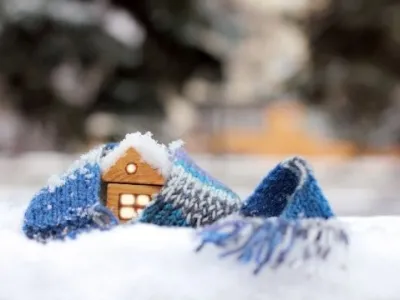Shut off protections for Minnesota residential customers

Published October 28, 2020; Updated October 4, 2021
This heating season can bring more challenges to families who are already struggling to keep up with utility bills. Contrary to common belief, utilities can be shut off during the winter months. Fortunately, Minnesota law contains consumer protections, and some extra protections are in place during the COVID-19 emergency.
COVID-19 protections
(Protection no longer available) During the current state of emergency and for at least 60 days after the emergency is lifted, Minnesota’s regulated utilities are prohibited from disconnecting residential customers’ service. The regulated utilities are CenterPoint Energy, Dakota Electric Association, Great Plains Natural Gas, Greater Minnesota Gas, Minnesota Energy Resources, Minnesota Power, Otter Tail Power, and Xcel Energy. Other cooperative and municipal utilities are allowed to shut customers off for nonpayment, and many are doing so.
Cold Weather Rule
The Cold Weather Rule (CWR) provides special protections for Minnesotans facing disconnection between October 1 and April 30. This does not mean that your utility provider cannot disconnect service. It does, however, require your utility to take extra steps before disconnection.
Customers must be offered a payment plan to pay back past-due bills. As long as you make and keep up payments on such a plan, you cannot be disconnected. If you already missed a payment on a payment plan prior to October 15, you may call your utility and request CWR protection in order to make a new arrangement.
CWR protection applies only to electric and natural gas service, not to propane, fuel oil, or wood.
If you are behind on your bills and worried about being disconnected, contact your utility company and request CWR protection. Make sure the agreed payment plan works given your personal financial circumstances. If a customer misses a payment on a payment plan, the utility is not required to reenter a payment plan, so it’s very important not to agree to a plan that you cannot keep.
Customers of investor-owned (for-profit) utilities whose household incomes qualify for energy assistance cannot be charged more than 10 percent of their income on a payment plan during the Cold Weather Rule months. This applies to the regulated utilities listed above, except Dakota Electric Association. If you cannot come to an agreed payment plan with your utility provider or you feel like your provider is asking you to pay more than you can afford, do not agree to anything. Instead, contact the Public Utilities Commission Consumer Affairs Office to file an appeal. The Consumer Affairs Office will help you and your provider arrange a plan based on what you can afford to pay. You can also find additional information about the Cold Weather rule on their website.
Medical device protection
If you have medical equipment that is needed to keep you or a household member alive, your household qualifies for medical account protection under state law.
If you think you qualify, call your utility and request medical account status. They may give you forms to complete and will require a doctor’s note. If you are overdue on your bills, they will also require you to make (and keep) a payment agreement to pay back your arrears. If you and your utility disagree about whether a medical device qualifies you for this protection, or if you cannot come to an agreement on a reasonable payment plan, consult the Public Utilities Commission Consumer Affairs Office for assistance.
Military personnel protection
When a member of a household gets called up for military service, it can cause financial strain. State Statute forbids a municipal utility, cooperative electric association, or public utility to disconnect the utility service of a residential customer if a member of the household has been issued orders into active duty if the household creates a payment plan with the utility provider.
Resources to help with utility bills
If you are having trouble affording your utility bills, assistance may be available from your local energy assistance provider, your county, the Salvation Army, or other organizations.
Our advice
- When in doubt, contact the Public Utilities Commission Consumer Affairs Office. They will work with your utility provider and you to help you figure out a plan to prevent disconnection or reconnect after your electricity has been disconnected.
- Don’t wait; act immediately. After receiving your initial notice, if you can’t agree on a payment plan with your utility, you may only have “seven working days after the customer’s receipt of a personally served appeal notice, or within ten working days after the utility has deposited (utility documents mailing) a first-class mail appeal notice.” Even if you owe a smaller amount of money, your utility provider can still decide to shut your services off. There is no minimum amount of money you need to owe for a utility provider to shut your services off.
For further in-depth information on these policies, consult the information provided by the Public Utilities Commission here.
Contact information
Public Utilities Commission Consumer Affairs Office
651-296-0406, 800-657-3782 or email consumer.puc@state.mn.us
For help finding resources to catch up on past-due bills, if you need help with lowering the cost of your bills to avoid disconnection, or if you have any other questions, please reach out to us at (651) 300-4701 or at info@cubminnesota.org.